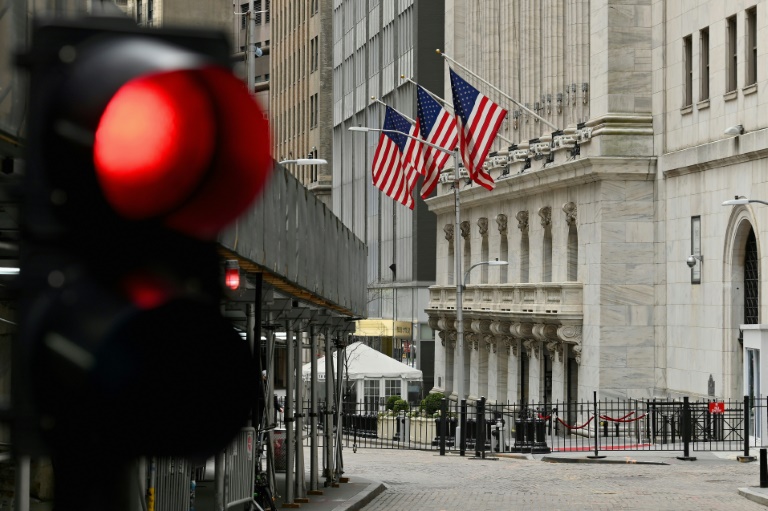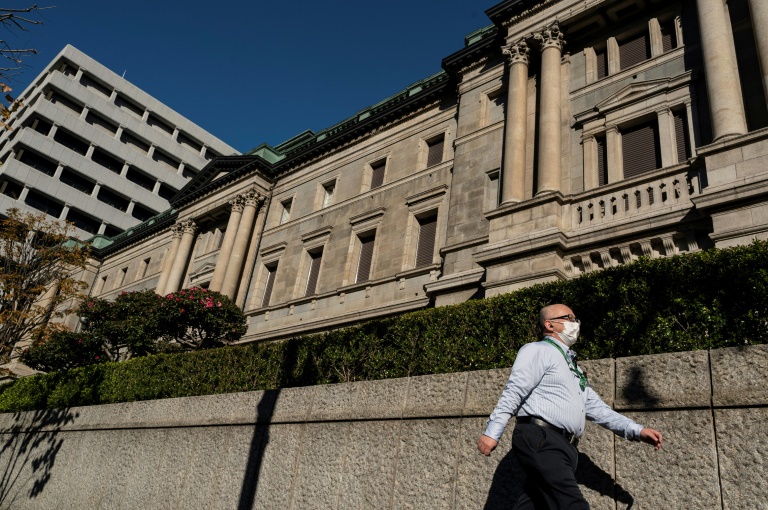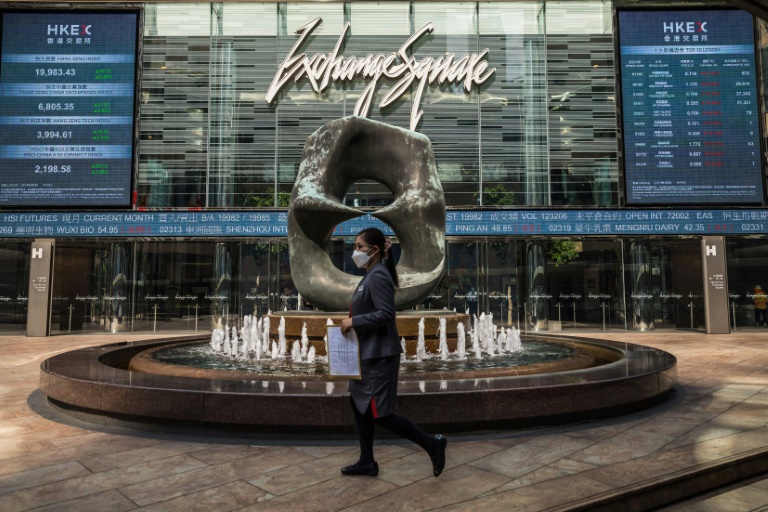Stock markets were lower on Wednesday as investors weighed the prospect of recession while inflation soars around the world.
The yen fell to new lows against both the dollar and euro after the Bank of Japan — in contrast with other central banks — decided not to raise interest rates to rein in combat runaway consumer prices.
Just a day after the World Bank slashed its forecasts for global growth, the OECD warned that the world economy would pay a “hefty price” for Russia’s invasion of Ukraine and inflation would keep rising.
The Paris-based Organisation for Economic Co-operation and Development predicted that the world economy would grow by three percent this year — much slower than its previous estimate of 4.5 percent in December.
Market sentiment “continues to remain extremely fickle, prone to the ebb and flow of inflation expectations, followed by fears that central banks will overreact in combatting inflation (and) concern about what that might do to global growth,” said CMC Markets analyst Michael Hewson.
“This argument over whether we see a recession… is likely to become a lot clearer over the next week or so,” he said, pointing in particular to the release of US inflation data on Friday.
European stock markets ended the session in the red and Wall Street was also lower following two days of gains.
Earlier in Asia, stock prices had rallied as China eases Covid lockdown restrictions and is forecast to lift its crackdown on the tech sector.
China’s approval of dozens of new video game releases sent shares of some of its biggest tech firms soaring Wednesday.
Global equities have enjoyed some respite in recent weeks from a painful sell-off caused by central bank monetary tightening, in particular by the US Federal Reserve.
The new inflation data on Friday will provide a clearer idea about the pace of future Fed rate hikes.
In Europe, the European Central Bank is on Thursday expected to signal an end to its bond-buying, paving the way for an interest rate increase further down the line.
“The reality for the economy and probably the stock markets is that aggressive central bank rate hikes are likely to take a sharp bite out of household consumption,” said SPI Asset Management’s Stephen Innes.
Hungarian inflation has reached double figures for the first time in 20 years, official data showed Wednesday.
High oil prices, a major factor behind the surge in inflation, were up again on Wednesday.
– Key figures at around 1540 GMT –
New York – Dow: DOWN 0.2 percent to 33,128.37 points
London – FTSE 100: DOWN 0.1 percent at 7,593.00 (close)
Frankfurt – DAX: DOWN 0.8 percent at 14,445.99 (close)
Paris – CAC 40: DOWN 0.8 percent at 6,448.63 (close)
EURO STOXX 50: DOWN 0.5 percent at 3,788.93
Tokyo – Nikkei 225: UP 1.0 percent at 28,234.29 (close)
Hong Kong – Hang Seng Index: UP 2.2 percent at 22,014.59 (close)
Shanghai – Composite: UP 0.7 percent at 3,263.79 (close)
Dollar/yen: UP at 133.91 yen from 132.62 yen late Tuesday
Euro/dollar: UP at $1.0739 from $1.0715
Pound/dollar: DOWN at $1.2553 from $1.2592
Euro/pound: UP at 85.55 pence from 85.02 pence
Brent North Sea crude: UP 1.6 percent at $122.55 per barrel
West Texas Intermediate: UP 1.5 percent at $121.20 per barrel
burs/spm/jj











